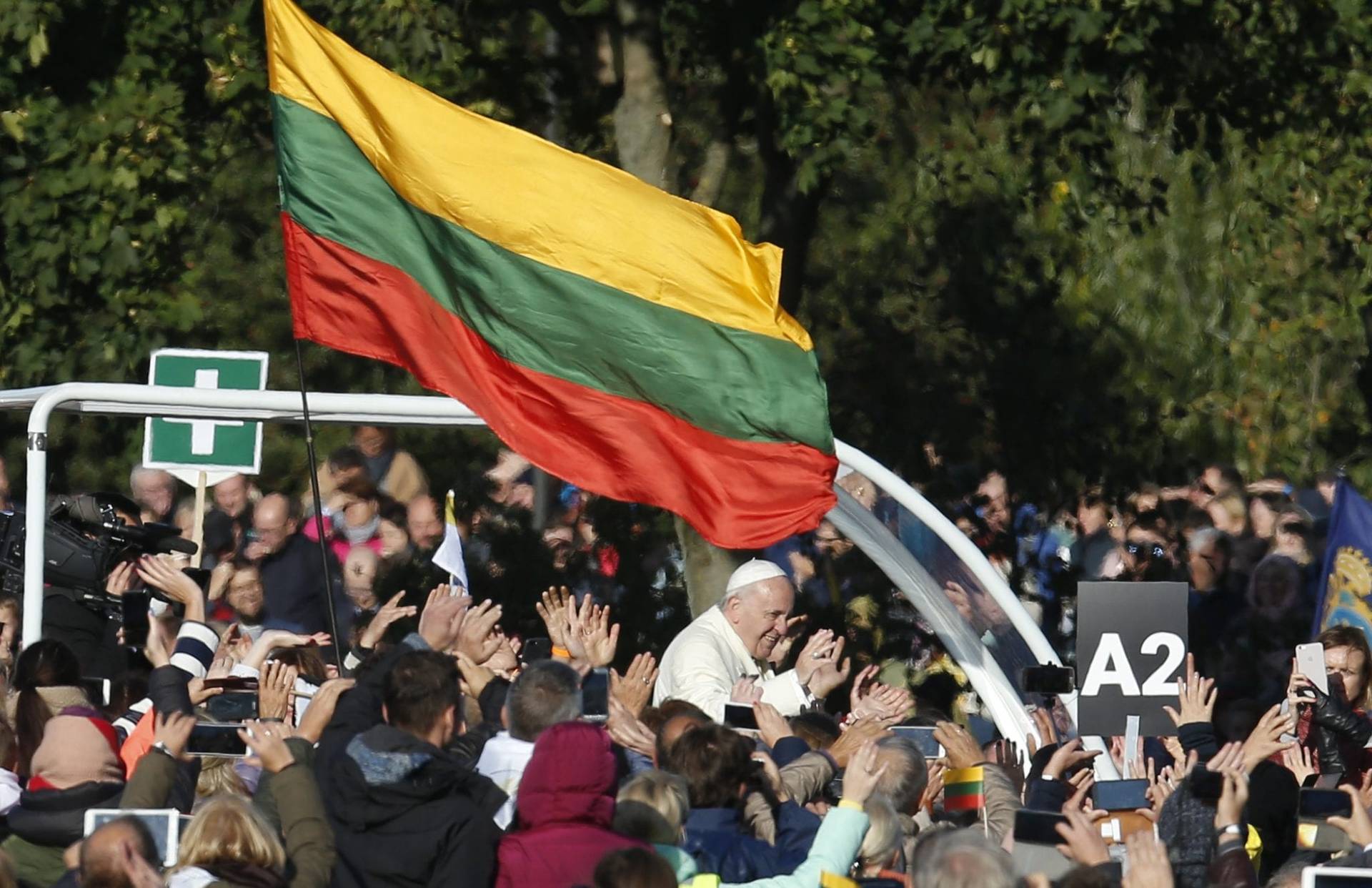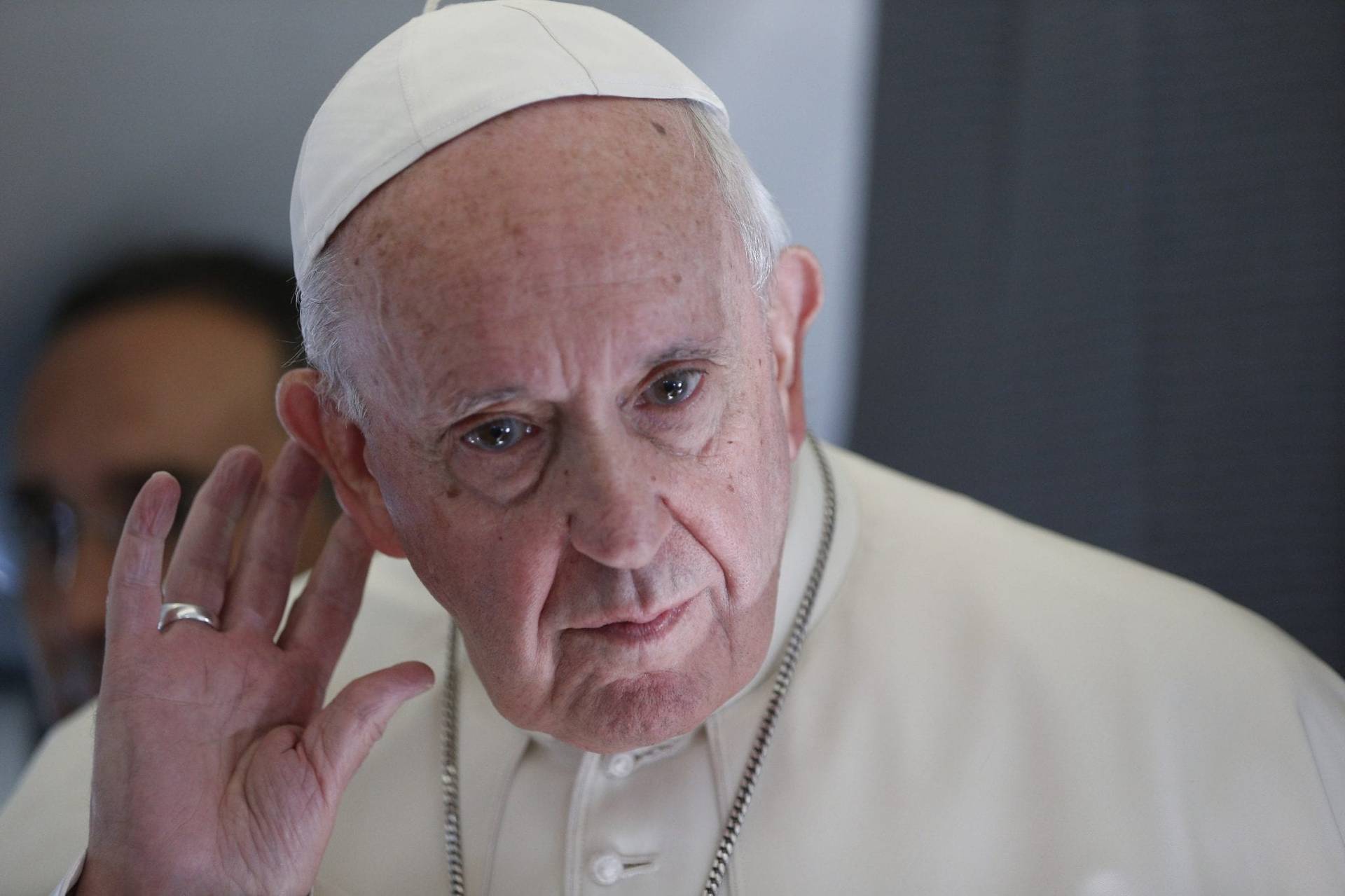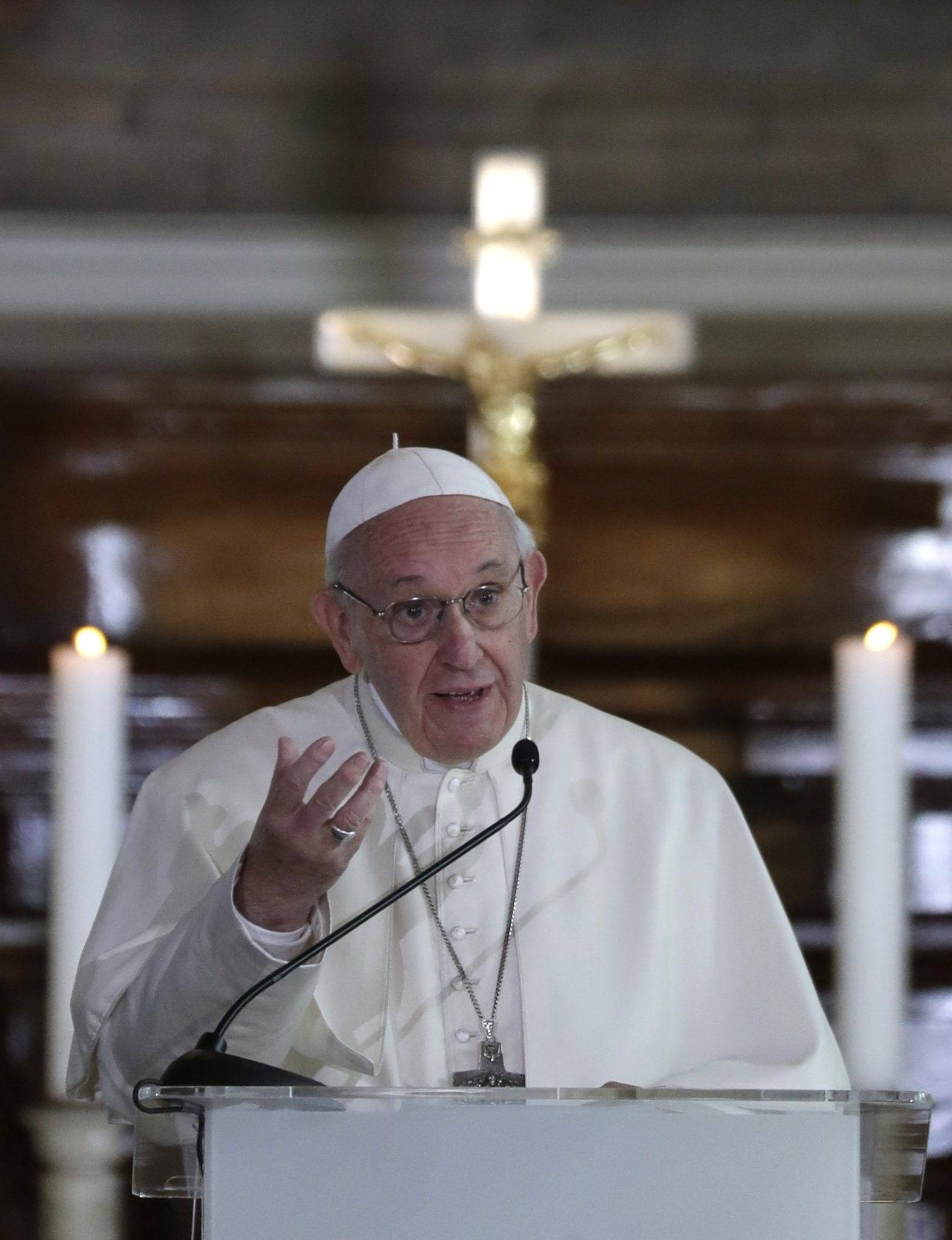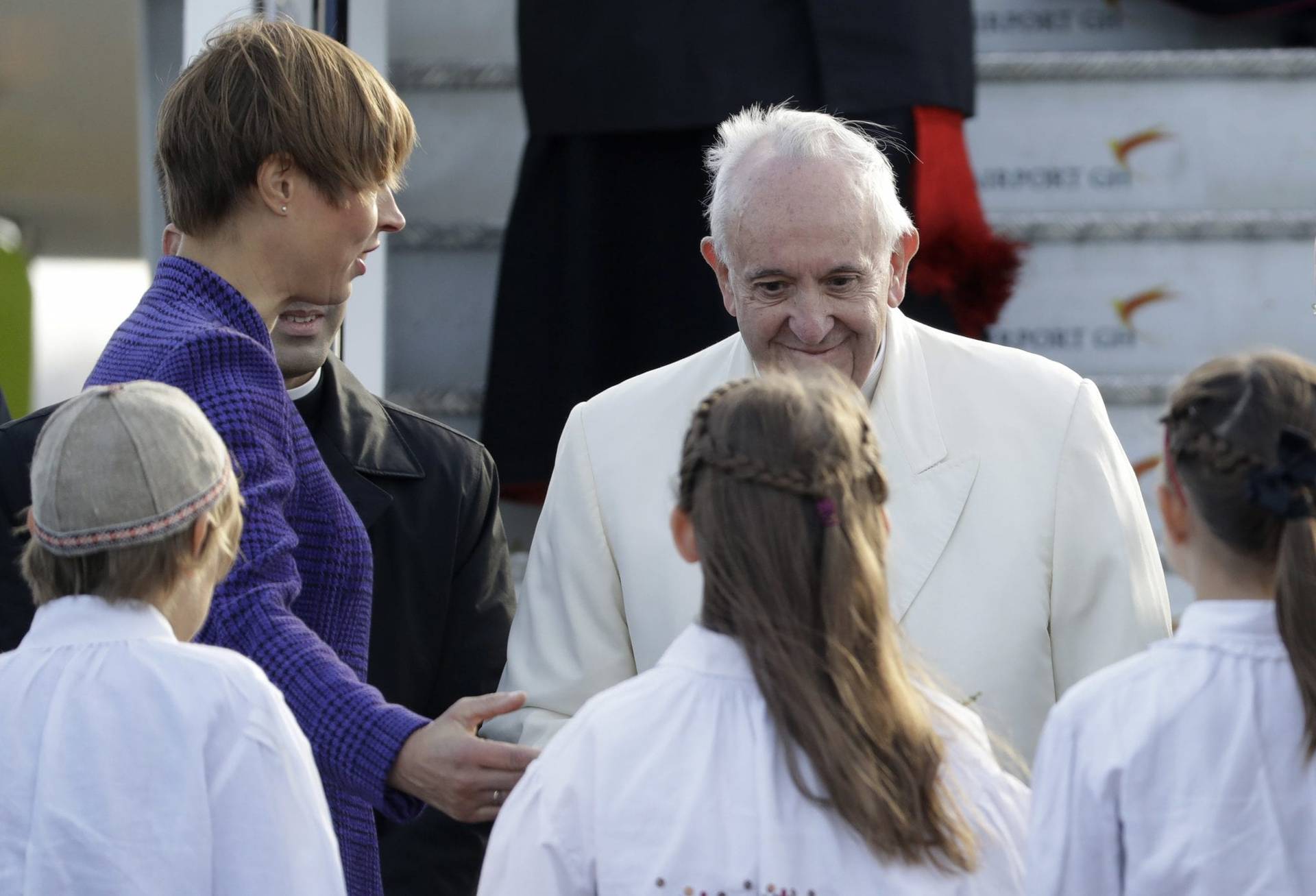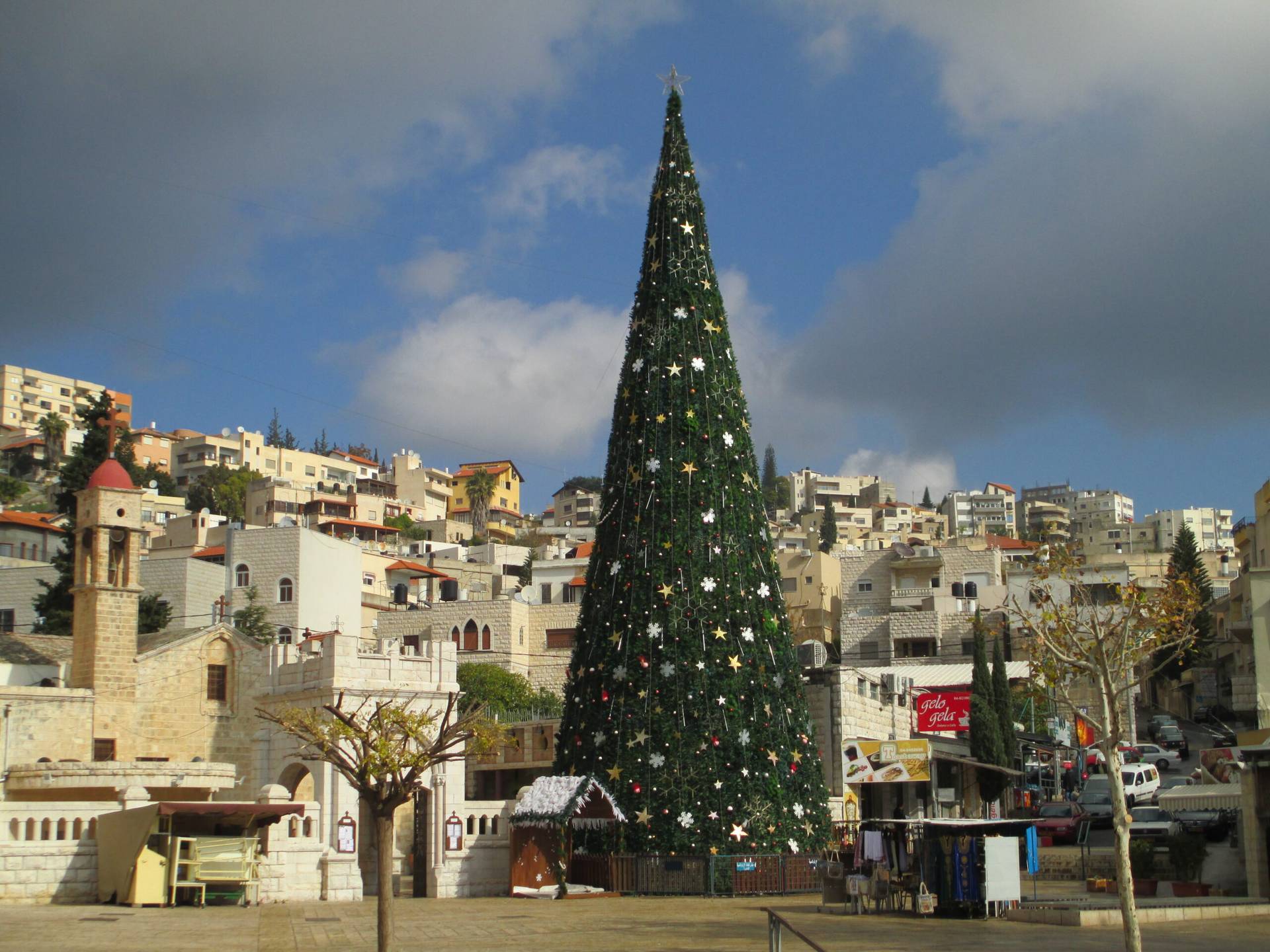VILNIUS, Lithuania – Pope Francis hit the ground running in Lithuania on Saturday, setting out the agenda for his Sep. 22-25 visit to the Baltic States by warning against xenophobic attitudes while reaching out to youth and urging a posture of welcome.
“If we look at the world scene in our time, more and more voices are sowing division and confrontation – often by exploiting insecurity or situations of conflict – and proclaiming that the only way possible to guarantee security and the continued existence of culture is to try and eliminate, cancel or expel others,” Francis said during a speech to Lithuanian authorities in front of the Presidential Palace.
Lithuania, the pope said, can offer a contribution by promoting a message of welcoming and acceptance, deeply rooted in its history. Francis recognized that the country suffered “in the flesh” the consequences of imposing a single model of life, first under German occupation and then under Soviet control.
“Through dialogue, openness and understanding, you can become a bridge between Eastern and Western Europe,” Francis added.
Francis’s visit takes place on the 100th anniversary of the Baltic States’ independence, and a quarter of a century after Soviet troops withdrew from Northern European territories. The occupation had serious and lasting consequences, both in society and in the local Church.
Democracy in the Baltic states is still struggling to take off, and economic sluggishness leads youth to seek opportunities elsewhere in disproportionate numbers.
Observers also say that the local Church, which was muzzled and persecuted under Soviet control, in many ways has lost touch with society and Catholics have been steadily diminishing in the country.
“It has been a century marked by your bearing numerous trials and sufferings: detentions, deportations, even martyrdom,” Francis said, adding that the centenary offers the opportunity to revive the memory of the country’s past in order to address today’s challenges.
“Each generation is challenged to make its own the struggles and the achievements of the past, and to honor in the present the memory of all those who have gone before,” he added.
“We do not know what tomorrow will bring, yet we do know that each age has a duty to cherish the ‘soul’ that created it and helped it to turn every situation of sorrow and injustice into opportunity, preserving alive and healthy the roots that nurtured the fruits we enjoy today.”
Francis praised Lithuania’s tradition of welcoming people of different ethnicities, from Russian to Poles to Tartars, and religions, including Catholicism, Judaism and Protestants.
“To draw strength from the past is to recover those roots and keep alive all that continues to be the most authentic and distinctive about you, everything that enabled you to grow and not succumb as a nation: tolerance, hospitality, respect and solidarity,” Francis said.
In order for this history to be preserved, he added, it must be shared and taught to young people so that they may preserve it in the present and the future. He also encouraged local authorities to implement policies that would support youth.
Lithuania’s population has shrunk from 3.7 million in 1992 to 2.85 million in 2017. The country also has an aging society, with 19.3 percent of its citizens being 65 or older, a parliament study found. This dangerous combination makes encouraging youth to stay in the country a top priority.
“A society in which young persons can find room for growth and for employment, will help them feel that they have a leading role to play in building up the social and communitarian fabric,” Francis said.
“This will prove a seed of hope, for it will lead to a dynamic process in which the ‘soul’ of these young people will continue to generate hospitality: hospitality toward the stranger, hospitality toward the young, towards the elderly and the poor, and, ultimately, hospitality toward the future,” he concluded.
“During the years of the hardest trials – in exile, in the lagers, in the prisons, in the bunkers of the resistance the people of this country saved itself thanks to the depth of their faith,” said Lithuanian President Dalia Grybauskaitéovà in the crowded square.
“This meeting with you will reinforce our faith and will inspire a new interior strength,” she added.










